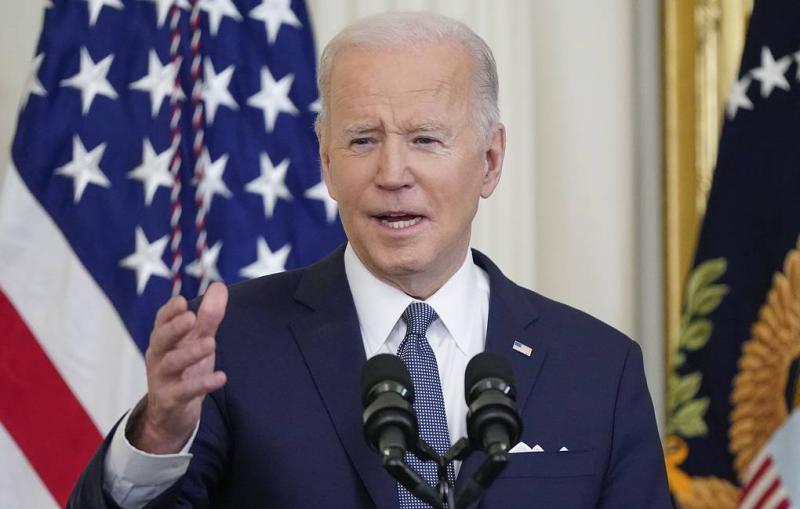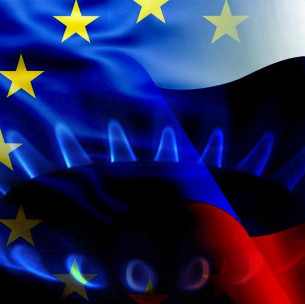
© AP Photo/Patrick Semansky
Analyzing recent statements by Western politicians and media reports, one may detect US-led collective West’s certain fatigue in addressing the Ukrainian crisis, as evidenced by calls for Kiev to cede part of the country's territory to Russia. Thus, Britain’s Daily Express refers to a survey by the American-British Democracy Institute to note that 43% of US citizens are “ok” with Ukraine losing. In turn, The Washington Post notes that the West is no longer confident of its client state’s victory.
Ivan Baker, a member of the Canadian Parliament from the Liberal Party, has recently confirmed reports that “fatigue” from Ukraine is accumulating in Western countries. The latter are growing tired of the situation in Ukraine, he stressed and recalled a statement by the French President that Moscow has to be "calmed down". When interviewed by Ouest France, Emmanuel Macron said Russia should not be humiliated and suppressed. “We must not humiliate Russia so that the day when the fighting stops, we can build an exit ramp through diplomatic means,” the French leader said back then.
In turn, expert Hugh De Santis, who oversaw NATO and arms control policy planning at the US State Department, is confident that the Alliance must prompt Ukraine to sit down to talk with Russia so that Kiev cedes territories and assumes a neutral status. "A military victory is unlikely for Ukraine, with negotiations being the only realistic goal," he says. Moreover, NATO should limit the supply of weapons to Ukraine’s Armed Forces making it a key pressure factor, and establish relations with the Russian leadership. Meanwhile, the Kremlin insists that negotiations require a "specific written document" to address the challenge.
Kiev has a negative stance on calls to waive part of its territories. President of Ukraine Volodymyr Zelensky previously noted that the world is growing tired of the situation in Ukraine, with Kiev being pressed into a peace deal with Russia on “unfavorable” terms. He says he cannot agree to demands of this kind, however. "Everyone wants to push us a little towards some kind of result, definitely unfavorable to us, because they don’t ask us yet, but it’s beneficial for certain parties that have their own interests," the President of Ukraine stressed. He is sure the allies are only seeking financial or political gains. According to Zelensky, this is because the world is fed up with the crisis in Ukraine, and the West is waiting for at least some kind of outcome. But Kiev needs its own outcome, the one not running counter to its stance.
Whether the West will heed or ignore the Ukrainian leader’s wish is not a dead ender. Western countries seem to have an attack of stinginess because of money they’ve spent on protecting the corrupt and arrogant Kiev regime. Having made certain of Ukraine’s imminent defeat, they are getting uncomfortable about protracting the hopeless lend-lease project and the non-starter of "cancelling" Russia within the global community. The West is especially frustrated by anti-Russian sanctions. In particular, 53% of respondents to the above-mentioned Democracy Institute poll are sure that anti-Russian sanctions harm the United States more than Russia itself.
A recent piece in America’s The Hill claims that the West is “struggling to find an acceptable path toward a compromise”, having realized that sanctions and isolation of Russia do not yield the desired effects. The United States failed to rally the world against Russia, the author writes, with only 65 out of the195 countries having joined Washington’s sanctions regime. "Giants" like China, India, Brazil, Mexico and Indonesia refused to engage in the economic war against Moscow. "All of this tells any objective observer that it is not Russia that is the world’s most isolated superpower but perhaps the United States itself," the outlet summed up.
Just a reminder: Western countries imposed new sanctions against Russia after its president initiated a special military operation in Ukraine on February 24 to protect the DPR and LPR. Restrictions primarily impinge upon the financial sector and the supply of high-tech products. However, a step to this effect entailed skyrocketing energy and food prices in the United States and Europe. As President Vladimir Putin stated, “the policy of containment, weakening of Russia, including via economic isolation and blockade is a deliberate, long-term strategy… but a serious blow has been dealt to the entire global economy and trade… aimed at worsening the lives of millions of people.” By the way, America’s latest surveys show that 53% of those polled are sure it’s time for President Joe Biden to retire. Among the reasons they mention his lies and accusations against Vladimir Putin of growing gasoline prices, baby food shortage and lack of feminine sanitary protection.
In many respects the collective West’s stance on Ukraine will most likely depend on Washington's further steps. However, there is no conformity in the United States itself, as the Biden administration is torn by the squabbling "hawks" and "doves". While earlier their struggle did not go public, now tables are turned and the American media started featuring specific requirements for the White House to somehow address the Ukrainian issue.
In this regard, we cannot fail to mention Joe Biden's policy essay published on May 31 in The New York Times and headlined " What America Will and Will Not Do in Ukraine." The American leader expressed his vision of both the Ukraine strategy and future ties with Russia. Having pledged further assistance to Kiev, he said Washington did neither seek war with Russia or see any indication that Moscow “has intent to use nuclear weapons in Ukraine.” The US President also made it clear he would not bow to pressure by his critics urging tougher steps on the Ukrainian issue despite the risk of aggravating relations with Moscow.
In the article, experts found some hints from Washington concerning its desire to slowly "wrap up" the Ukrainian crisis and get the ball rolling to smooth relations with Moscow. This, along with “giving up on” President Zelensky, as The Daily Express wrote the other day, is scarcely brought about by Washington's big bad love for Moscow. It's just the deplorable economic situation which forces President Biden to seek an off-ramp. One of the solutions is putting an end to the crisis in Ukraine and retargeting billions of dollars for the good of the United States itself. Easing sanctions against Russia would also help right the ship of American economy.









